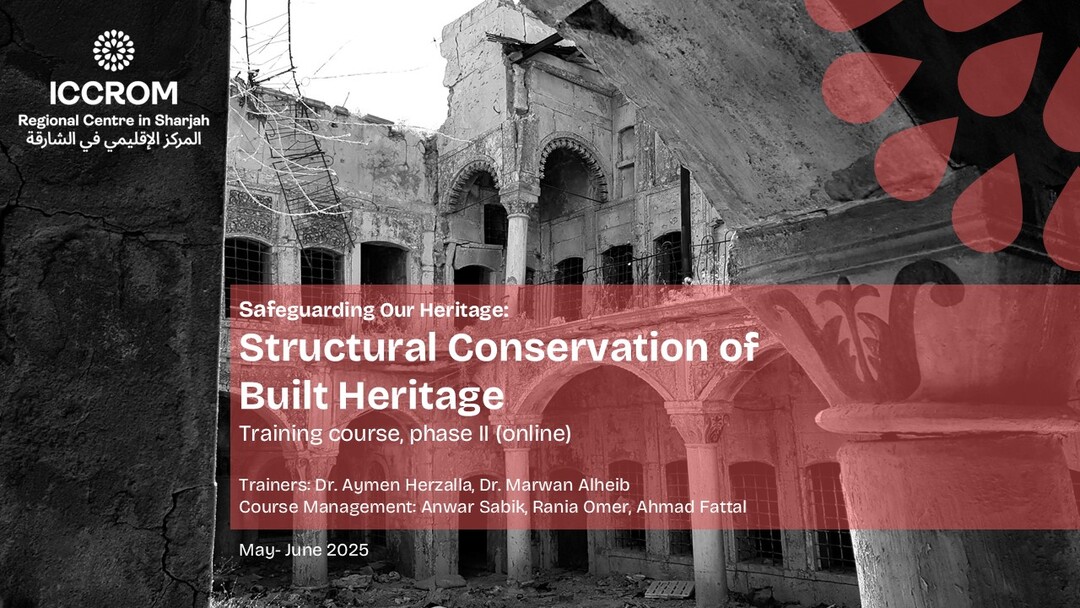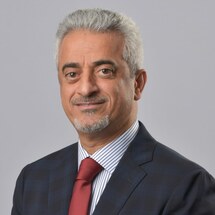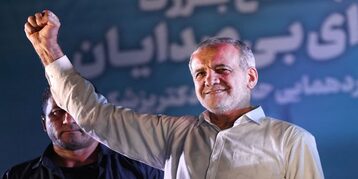-
The second phase of the “Structural Conservation of Heritage Buildings” course successfully concludes.

The second phase of the “Structural Conservation of Heritage Buildings” course successfully concludes.
Sharjah, United Arab Emirates, June 4, 2025 – The International Centre for the Study of the Preservation and Restoration of Cultural Property (ICCROM), in collaboration with its regional centre in Sharjah, has recently completed the second phase of its online advanced training course titled "Structural Conservation of Built Heritage." The course attracted over 125 participants from 27 different countries, indicating a growing global interest in the topics offered. This high level of attendance also reflects the breadth of activities provided by the ICCROM Regional Centre in Sharjah as part of its training and capacity-building programme.
The training course was designed to equip participants with the skills and knowledge to preserve the historical value of heritage structures while also enhancing their structural integrity. It focused on advanced skills in structural assessment and diagnostics, providing practical expertise in designing and implementing targeted structural interventions. These competencies were further strengthened through real-world case studies tackling complex conservation challenges,empowering participants to take a leading role in heritage conservation and drive meaningful impact in the field.
"The ICCROM Regional Centre in Sharjah is dedicated to enhancing the capabilities of individuals involved in cultural heritage, including restorers, managers, researchers, and students," stated Mr. Nasir Al Darmaki, Deputy Manager of the ICCROM Regional Centre in Sharjah. "The Centre aims to improve their knowledge and skills in managing, preserving, and revitalizing cultural heritage, ultimately contributing to a better present and future for society. This mission aligns with ICCROM's strategic directions and the vision of the Government of the Emirate of Sharjah for the Arab region."
Architect Anwar Sabik, course manager and Programme Officer for Training and Field Projects at the ICCROM Regional Centre in Sharjah, stated: "The goal of organizing this remote training on structural conservation is to engage a wide range of beneficiaries, particularly in areas where structural conservation is most needed. These regions face natural and human challenges that threaten the safety of historic buildings.”
“We aim to present the concept of structural conservation along with its integrated methodology. This approach is supported by a variety of diverse and rich projects and case studies from reputable international experts who are dedicated to high quality and professional ethics. They adapt to the unique characteristics of each region's heritage to enhance knowledge for Arabic speakers.”
Dr. Ayman Harzallah and Dr. Marwan Al-Heib conducted the 11-day training course. Dr. Harzallah is a structural and seismic design expert affiliated with the Grucci Foundation in Italy. He has extensive experience in reinforcing and restoring historical, artistic, and archaeological buildings. Dr. Al-Heib is a project manager, educator, and researcher at the University of Lorraine in France, with over 41 years of practical experience in structural engineering and risk assessment.
In the first part of the training course, Dr. Al Heib addressed structural restoration techniques, emphasizing the significance of construction technology and material properties. The discussions centered on the behavior of structural elements, such as columns, walls, and beams, particularly in masonry and brickwork. Common issues in historic buildings, such as differential settlement and water damage, were explored alongside restoration techniques and the challenges of using modern materials. The course included case studies that highlighted the integration of engineering principles with conservation efforts, showcasing the importance of collaboration between restoration experts and structural engineers to maintain the historic integrity of buildings.
“The training course aimed to provide an advanced level of structural conservation of historic buildings. Our lectures, which included engineering principles and case studies, aimed to enhance the engineers' competencies in understanding structural behavior so they could conserve heritage buildings," said Dr. Al-Heib, reflecting on his experience as a lecturer in this course. "Through this activity, organized by the ICCROM Regional Centre in Sharjah, interested parties from the Arab region have access to international sources of knowledge within a professional and accessible training framework," he added.
In the second part of the training course, led by Dr. Ayman Harzallah, participants delved into engineering principles and structural restoration theory through comprehensive case studies, with a focus on heritage building conservation and earthquake resistance techniques. Key topics included materials analysis, safety calculations, and collaboration between restoration experts and engineers. The course included practical demonstrations, such as the restoration of a 16th-century Italian palace and the transportation of an ancient obelisk from Italy to Ethiopia. It also featured case studies of notable projects, including the Ashrafieh School project, located near the Al-Aqsa Mosque in Jerusalem, and the Saint Catherine's Monastery project in Egypt.
"This training course provided an opportunity for me, as an expert in structural and architectural conservation, to share the knowledge I have gained over more than 36 years at the Grucci Foundation in restoring historic buildings of various shapes and sizes across different geographical and social contexts,” said Dr. Harzallah. “The course enabled us to share disciplined methodologies along with the latest technologies and scientific advancements in structural and architectural conservation. ICCROM has always served as a forum for exchanging experiences and transferring knowledge."
The training course concluded with a full day dedicated to discussing case studies presented by participants, who shared real experiences from their respective countries and workplaces. This session allowed the trainees to receive advice from trainers on how to manage these cases, allowing each trainee to tailor the guidance to their specific contexts. A key point raised by the participants was the need for additional specialized training courses, particularly on the consolidation of modern concrete structures classified as heritage sites in the Arab region, as well as the restoration of stone, wood, and earthen buildings.
In conclusion, the questions and suggestions raised during the lectures enriched the training experience and provided valuable insights for the ICCROM Regional Centre in Sharjah in developing future training courses as part of its capacity-building programme. The programme’s objective is to equip professionals with the theoretical knowledge and practical skills necessary for the conservation and management of cultural heritage sites.
About the ICCROM Regional Centre in Sharjah
The ICCROM Regional Centre in Sharjah is a cultural hub generously supported by His Highness Sheikh Dr. Sultan bin Muhammad Al Qasimi, the Ruler of Sharjah and member of the Supreme Council of the United Arab Emirates. The office is a powerhouse of cultural heritage knowledge, specially created for widespread adoption in Arabic-speaking countries. Launched in 2012, ICCROM-Sharjah is dedicated to protecting cultural heritage in the Arab region and broadening access,
appreciation, and understanding of its rich history.
Levant News - Syria
You May Also Like
Popular Posts
Caricature
BENEFIT Sponsors BuildHer...
- April 23, 2025
BENEFIT, the Kingdom’s innovator and leading company in Fintech and electronic financial transactions service, has sponsored the BuildHer CityHack 2025 Hackathon, a two-day event spearheaded by the College of Engineering and Technology at the Royal University for Women (RUW).
Aimed at secondary school students, the event brought together a distinguished group of academic professionals and technology experts to mentor and inspire young participants.
More than 100 high school students from across the Kingdom of Bahrain took part in the hackathon, which featured an intensive programme of training workshops and hands-on sessions. These activities were tailored to enhance participants’ critical thinking, collaborative problem-solving, and team-building capabilities, while also encouraging the development of practical and sustainable solutions to contemporary challenges using modern technological tools.
BENEFIT’s Chief Executive Mr. Abdulwahed AlJanahi, commented: “Our support for this educational hackathon reflects our long-term strategic vision to nurture the talents of emerging national youth and empower the next generation of accomplished female leaders in technology. By fostering creativity and innovation, we aim to contribute meaningfully to Bahrain’s comprehensive development goals and align with the aspirations outlined in the Kingdom’s Vision 2030—an ambition in which BENEFIT plays a central role.”
Professor Riyadh Yousif Hamzah, President of the Royal University for Women, commented: “This initiative reflects our commitment to advancing women in STEM fields. We're cultivating a generation of creative, solution-driven female leaders who will drive national development. Our partnership with BENEFIT exemplifies the powerful synergy between academia and private sector in supporting educational innovation.”
Hanan Abdulla Hasan, Senior Manager, PR & Communication at BENEFIT, said: “We are honoured to collaborate with RUW in supporting this remarkable technology-focused event. It highlights our commitment to social responsibility, and our ongoing efforts to enhance the digital and innovation capabilities of young Bahraini women and foster their ability to harness technological tools in the service of a smarter, more sustainable future.”
For his part, Dr. Humam ElAgha, Acting Dean of the College of Engineering and Technology at the University, said: “BuildHer CityHack 2025 embodies our hands-on approach to education. By tackling real-world problems through creative thinking and sustainable solutions, we're preparing women to thrive in the knowledge economy – a cornerstone of the University's vision.”
opinion
Report
ads
Newsletter
Subscribe to our mailing list to get the new updates!






















